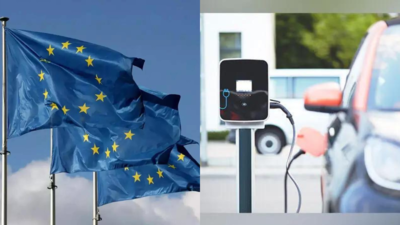
this European Union Approved substantively on Friday tariff exist electric car Germany imports from China despite leading strong boycott and fears of sparking trade war trade war with Beijing. The EU now has the power to impose tariffs for five years starting at the end of October, in addition to the existing 10% tariff.
According to multiple European diplomats, 10 member states including France, Italy and Poland supported the imposition of tariffs, 5 member states including Germany and Hungary voted against it, and 12 member states including Spain and Sweden abstained from voting.
France supports the tariffs, arguing they are necessary to create a level playing field for EU carmakers to compete with Chinese rivals. However, Germany, known for its strong auto industry and major manufacturers such as BMW, Volkswagen and Mercedes with heavy investments in China, believes the EU risks harming its own interests with tariffs and has called for continued negotiations with Beijing. .
Spain, which initially supported the tariffs, also changed its stance, with Prime Minister Pedro Sánchez asking Brussels to reconsider. Hungary has also been an outspoken opponent of tariffs, which Prime Minister Viktor Orban has described as “the next step in the economic cold war”.
These additional tariffs will also impose a 7.8% tariff on electric vehicles made in China by foreign companies such as Tesla.
The EU’s overriding goal in taking the decision was to protect its auto industry, which employs about 14 million people across the bloc but lacks significant state subsidies from China. In comparison, Canada and the United States recently imposed higher 100% tariffs on Chinese electric vehicle imports.
The group previously provisionally approved the measure in June after an investigation found China’s state aid to automakers was unfair.
The decision has now been made by the European Commission, which an EU diplomat said “is expected to make a decision based on its proposals”.
Meanwhile, China criticized the new tariffs as “protectionism” and warned it would lead to a trade war. Beijing has launched investigations into European brandy, dairy products and pork products imported into China.
Despite China’s efforts to resolve the issue through dialogue, negotiations have yet to reach an agreement satisfactory to the EU.
The European Commission said the tariffs could be lifted if China addresses the EU’s concerns.
In addition, trade tensions between China and the EU are not limited to electric cars, with Brussels also launching an investigation into Chinese subsidies for solar panels and wind turbines. The EU faces a difficult task as it tries to nurture its cleantech industry and invest in a green transition without sparking a costly trade war with China.







